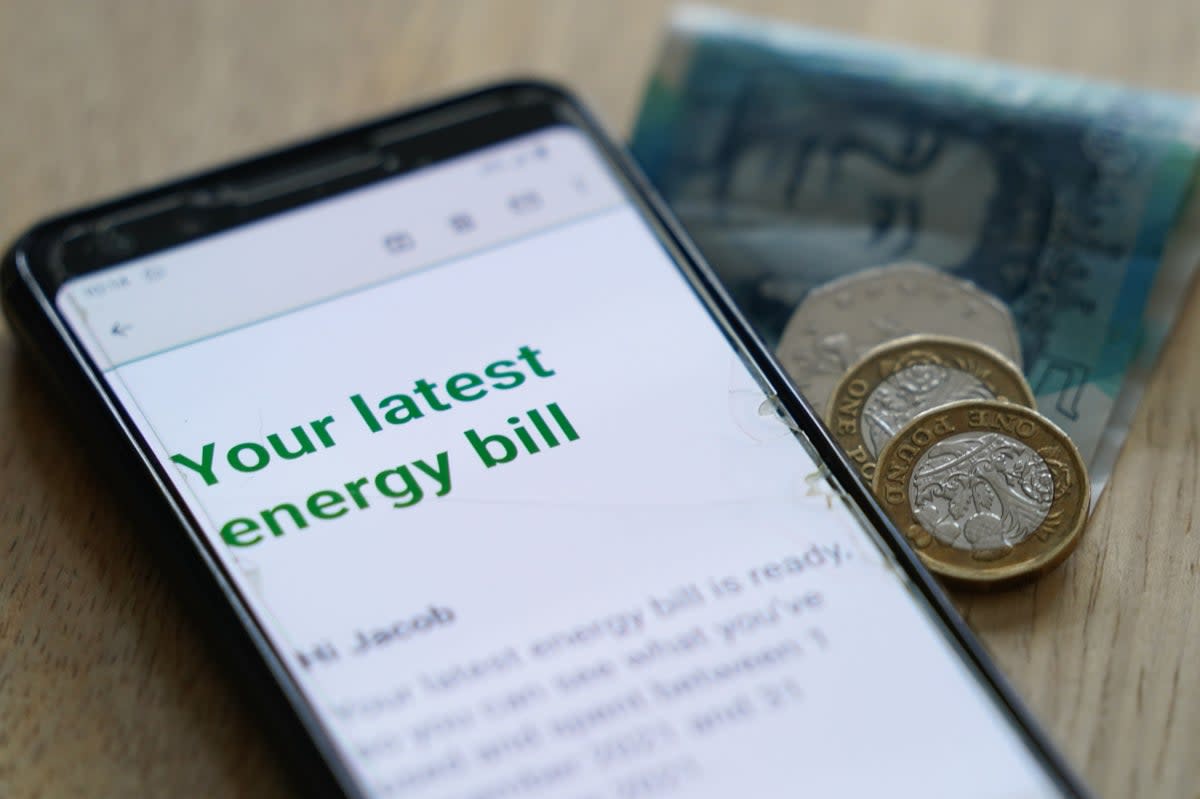High energy prices will harm children’s development, charities warn

Charities have warned high energy prices will harm children’s development this winter - after a survey found a quarter of parents have already cut back on the amount of food they buy.
Some 24 per cent of parents are buying less food since the start of the year in order to afford essentials, 28 per cent have cut back on the quality of food and 13 per cent have eaten cold meals or meals that do not require cooking to save money on energy bills, the poll of more than 4,000 UK households by YouGov found.
The boss of one London charity has described the energy bills crisis as “a desperate situation”, which has left anxious children struggling to sleep at night as low-income parents face choosing “between heating or eating”.
Laurence Guinness, chief executive of London childhood poverty charity The Childhood Trust, said: “We are extremely concerned about the impact that inflation and energy price rises are having on children’s development.
“Children living in the lowest income families are already suffering with food insecurity, cold, and lack of opportunity for recreation and leisure.
“This is causing a surge in depression and anxiety with children telling us that they can’t sleep at night because they are worried about their futures.
“One mother told us she can’t afford to put nappies on her toddler and doesn’t know what to do.
“I was with a group of mums on low incomes last weekend who were all having to choose between heating or eating.
“Some are already dependent on food banks and cannot put the heating on this winter however cold it gets, otherwise they will not be able to eat. It’s a desperate situation.”
Mr Guinness warns of “dire” long-term consequences for children, including learning loss and a “loss of hope” as children living in poverty “are pushed to the bottom of society, unable to make the most of the opportunities available to them”.
The average household energy bill will rise from £1,971 to a frozen £2,500 from Saturday, under the energy price guarantee announced by Prime Minister Liz Truss earlier this month.
Overall, household bills will be 96% higher than last year.
Charity National Energy Action (NEA) said the number of UK households in fuel poverty will have increased from 4.5 million last October to 6.7 million now.
The Government’s plan only caps the cost per unit that households pay, with actual bills still determined by how much energy is consumed.
The recent YouGov survey - carried out for NEA and the Food Foundation - suggests 67 per cent of parents are worried that energy prices will mean they have less money to buy food for their household, while 51 per cent are worried about the coming winter and its impact on their family’s health.
NEA chief executive Adam Scorer said: “People have had to choose between heating and eating. This winter millions will not have even that choice.
“The most vulnerable, including children, will be cold and hungry as energy prices spiral, despite Government support.
“The impacts on health and wellbeing are devastating and will only get worse after Saturday’s price rises.
“It’s a public health emergency.
“More targeted and enduring support, like an energy social tariff, is crucial if the most vulnerable are to get through winter warm and fed.”
The findings come as Citizens Advice warned almost half-a-million more households could be forced onto more expensive prepayment meters by the end of the year because they have fallen into debt.
Under current rules, energy companies can push a household onto a prepayment meter when they cannot pay their bills, meaning they have to top up in advance, are unable to spread the cost of winter across the year and pay higher rates.
The advisory service predicts households on prepayment meters could spend £258 more on their energy this winter than someone paying by direct debit.
Citizens Advice chief executive Dame Clare Moriarty said: “Energy companies have a duty to protect customers, but forcibly moving people in debt onto prepayment meters is disconnection by the backdoor.
“Even with the bill freeze in place, the cost of energy will still be at a record high. If people can’t afford to top up, they’re at real risk of the heating going off and the lights going out.
“The Government must bring in a winter ban to stop energy companies forcing people already struggling onto prepayment meters. It should also bring in targeted support to help people on the lowest incomes pay their bills.”

 Yahoo Movies
Yahoo Movies 
